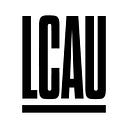What’s in a name? The Past’s Claim on Us in Public Spaces
Cities are forward-looking creatures, continually asking how to make a better future — or, at least, how to better seize the possibilities that will shape what they might become. But the discontents of the recent past has prompted an increased call — rightly so — to attend to the contours of the past. How does history and memory intersect in our public spaces, and how should we attend to those crossroads as we try to forge a more viable and just future? What does acknowledgment and encounter and engagement look like on our city streets, and how can we work to ensure that the past’s claim on us will encourage us to push for a better future? And how does naming — the ways we commemorate, orient, acknowledge, remember — help us wrestle with these challenges?
On 11-November Carolina Miranda and David Ulin Alderman joined Carnette Cadogan in a discussion of these issues, with a focus on Los Angeles and the report and recommendations of the Los Angeles Mayor’s Office Civic Memory Working Group (https://civicmemory.la). The discussion was anchored in a discussion on names and memory, but wrestled with what redress and restitution looks like.
The 2021 Fall Urbanism Lecture Series is co-hosted by the City Design & Development Program (CDD), SMArchS Urbanism Program, and Norman B. Leventhal Center for Advanced Urbanism at MIT.
